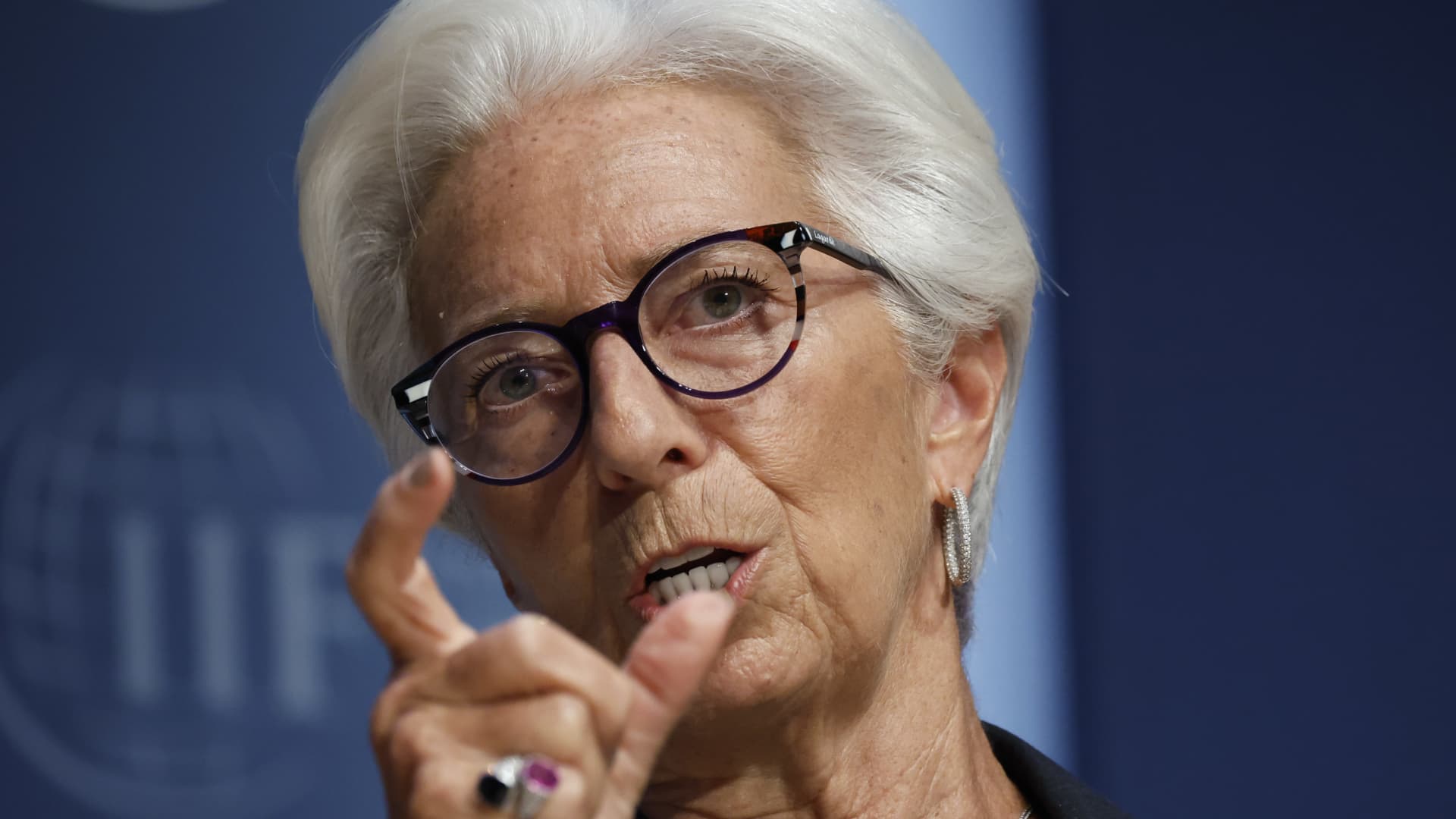The European Central Bank has announced its third consecutive increase in interesr rates this year.
Bloomberg | Bloomberg | Getty Images
The European Central Bank announced Thursday a 75-basis-point interest rate hike — its third consecutive increase this year — while also revealing new conditions for European banks.
Market participants had two questions in mind ahead of the meeting: When will the ECB start reducing its balance sheet, in a process known as quantitative tightening, and what will happen to the lending conditions for banks in the near future?
The ECB announced Thursday that it was changing the terms and conditions of its targeted longer-term refinancing operations, or TLTROs — a tool that provides European banks with attractive borrowing conditions, designed to incentivise lending to the real economy.
“The Governing Council … decided to adjust the interest rates applicable to TLTRO III from 23 November 2022 and to offer banks additional voluntary early repayment dates,” the ECB said.
“In order to align the remuneration of minimum reserves held by credit institutions with the Eurosystem more closely with money market conditions, the Governing Council decided to set the remuneration of minimum reserves at the ECB’s deposit facility rate.”
Because the ECB has been increasing rates faster than expected in the face of soaring inflation, European lenders are benefiting both from TLTROs and higher interest rates. The situation has been described by some as effectively providing a subsidy to banks.
“The optics are bad against the backdrop of a historical shock to households’ income, and political pressure cannot be ignored,” Frederik Ducrozet, head of macroeconomic research at Pictet Wealth Management, said in a note last week.
In addition, the latest rate hike takes the ECB’s main benchmark from 0.75% to 1.5%, a level not seen since 2009 before the sovereign debt crisis. It comes after the central bank rose rates by 50 basis points in July and 75 basis points in September.
The ECB is dealing with both record-high inflation and a slowing economy, with many economists predicting a recession in the region before the end of the year. It’s a fine balance for the central bank, as if it hikes rates aggressively in an effort to deal with inflation, it could cause even more trouble for the wider economy.
This is a breaking news story and will be updated shortly.






More Stories
Italy cracks down on cars assembled in Morocco – Times of India
Israel hits new parts of Northern Gaza; recovers remains of slain hostage – Times of India
Germany cleans up after massive floods – Times of India